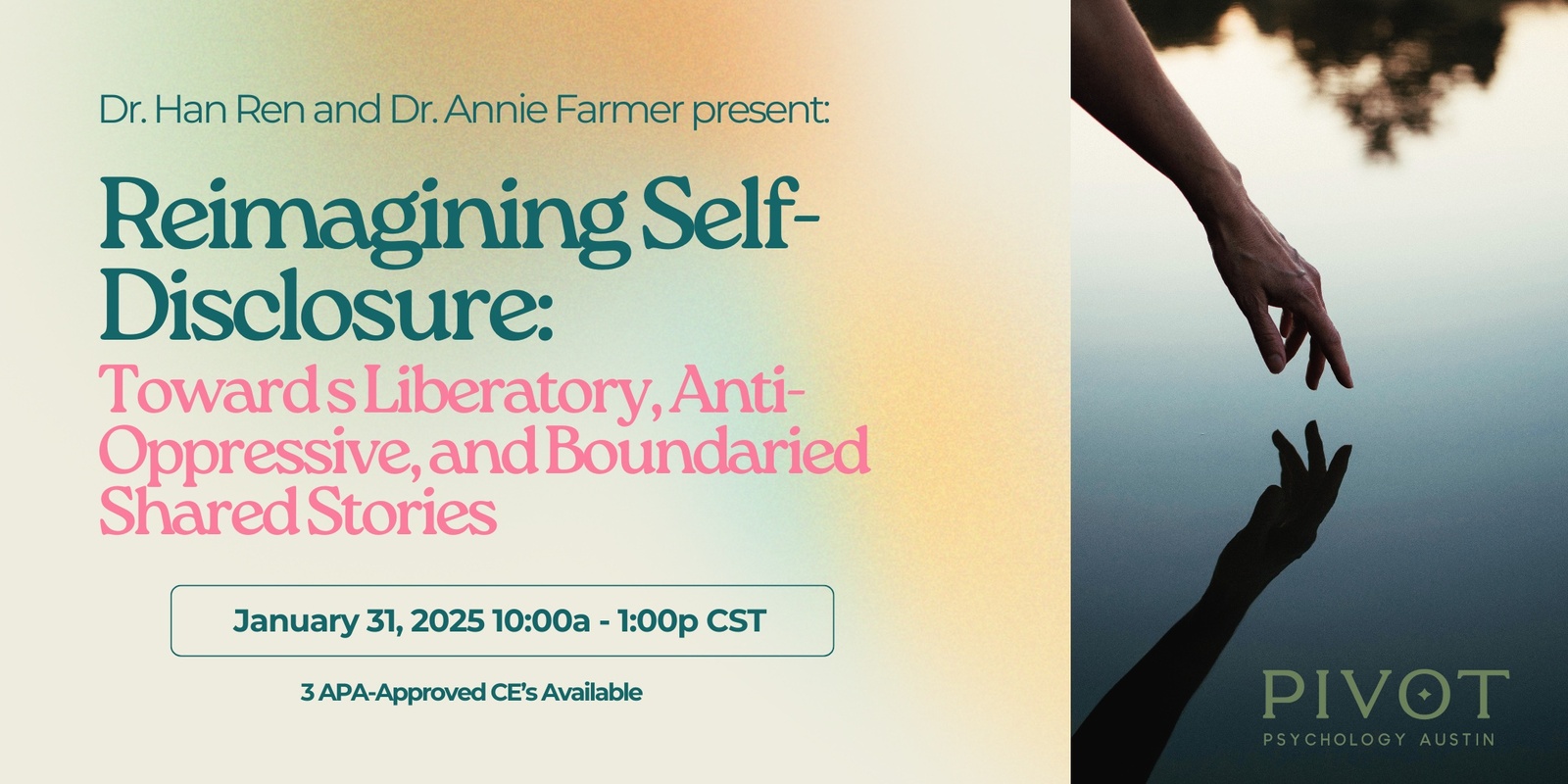Reimagining Self-Disclosure: Towards Liberatory, Anti-Oppressive, and Boundaried Shared Stories
Event description
Join us for reflections on research and the lived experiences of two psychologists with visibility.
From our earliest days of grad school, clinicians are taught to be extremely cautious about what they reveal in the therapy room. We’re encouraged to deflect personal questions, turning them back on the client, interrogating their desire to know. Even therapists who received a more balanced training around self-disclosure and use of lived experiences weren't taught a framework for how to navigate and approach these interventions.
In today’s modern age of news stories, social media, and run-ins “in the wild,” dodging self-disclosure in the name of boundaries can feel disconnecting, disingenuous, and even paternalistic and withholding to our clients. As our world becomes more integrated, fast-paced, and information-driven, our field is also moving towards normalizing therapists as multi-faceted and messy humans. Rooted in liberation psychology and anti-oppressive frameworks, this workshop will help clinicians interrogate and update their own self-disclosure and therapeutic boundary practices authentically and mindfully.
Drs. Annie Farmer and Han Ren are no strangers to the public eye as practicing psychologists. Dr. Annie was one of the first and only named victims in the highly publicized legal battles of Jeffrey Epstein and Ghislaine Maxwell, appearing in multiple Netflix documentaries and news features. Dr. Han has built a social media following of over 200k across platforms, sharing bite-sized pieces of self-help while integrating her own personal experiences and narrative.
Together, we’ve maintained our own client caseloads and led a group private practice throughout this time. For different reasons, we’ve navigated balancing our public personas with the intimate work of being someone’s therapist. Our professional psychologist identities are developing in tandem with, and inextricably shaped by, our identities and presence in media, public perception, and out in the world.
Join us as we share our personal and professional journeys and lessons learned. Learn from our adaptable and grounding framework for how modern healers can balance showing up authentically and mindfully both in and out of the therapy room.
Learning Objectives:
- Identify two contextual factors associated with effective use of therapist self-disclosure
- Outline two tenants of liberation psychology theory that support clinician visibility
- Apply three research-informed guidelines for effective application of therapist self-disclosure
Tickets for good, not greed Humanitix dedicates 100% of profits from booking fees to charity
